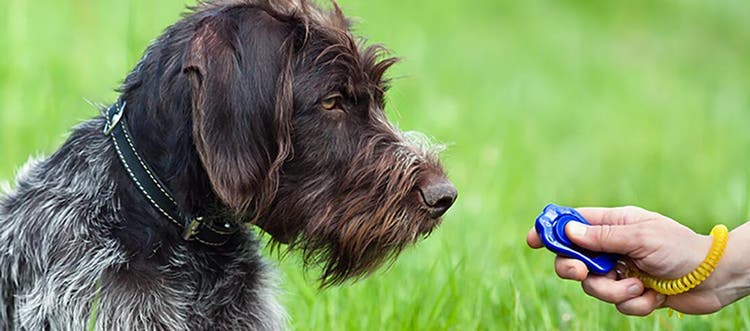Many worms such as heartworm, oesophageal worm and intestinal parasites like roundworms, hookworms, whipworm and tapeworms are often hiding in plain sight. Read on to see just how easily your dog can become infected with worms and what you can do to help protect your pets against worms.
These are the 6 ways your dog could pick up worms without you noticing
1. Eating worm eggs or worm larvae
Many parasites live in the grass and soil outside your home, and some parasites – like hookworms, roundworms, and whipworm – can survive there, making it easy for your dog to pick up these parasites when he’s outside sniffing around, exploring and playing. For example, roundworm eggs can pass into the soil from the faeces of an infected animal and lie dormant for a year or more, and your dog can accidentally ingest these worm eggs, which can lead to a parasitic infection.
2. Hunting behaviour
If your dog likes to hunt, it’s possible to catch worms, such as roundworms and hookworms from other infected animals, such as rodents and birds. Another worm that can infect dogs that hunt or eat roadkill is the hydatid tapeworm. This tiny but nasty tapeworm almost never causes disease in dogs, but it can pose a serious health risk to humans known as “hydatid disease”. This disease occurs in humans who accidentally ingest hydatid tapeworm eggs from the environment. These eggs can migrate from the intestinal tract and lodge in various organs (mainly the liver & lungs), where they can grow into large cyst-like structures, resulting in serious & potentially life-threatening disease. Hydatid disease is difficult to treat and control, so reducing the likelihood of exposure by regularly deworming your dog, preventing your dog from scavenging, and maintaining good hygiene practices is very important.
Besides intestinal worms, a particularly nasty parasite known as the oesophageal worm can also infect dogs that hunt. Make sure to keep an eye on where your dog roams and prevent scavenging.
3. Grooming
Dogs can also contract worms when grooming themselves or other dogs. Roundworm eggs can attach themselves to a dog’s coat, and if your dog swallows these when grooming, a new roundworm infection may develop.
4. From fleas
Swallowing fleas when grooming can lead to tapeworm infestations, too. Fleas can carry tapeworm larvae, which when swallowed develop into adult tapeworms in the dog’s intestine. Keep up with your regular flea prevention program to reduce the likelihood of this parasite or, even worse, a flea infestation on your dog and in the home.
5. From mother to pup
Roundworm, the most common worm affecting pets, can be transmitted from an infected mother to the unborn puppies in her womb via the placenta.
An infected dog can also pass roundworms and hookworms to her puppies during nursing. This means that puppies that are suckling are at risk of continual exposure to these parasites.
Roundworm and hookworm infestations can be extremely serious in young puppies and can even be fatal in severe cases. This is why regular deworming treatments for dogs young and old are so important. If you have recently adopted a new dog, check with your vet to see when you can begin deworming treatments for your new family member.
6. From mosquitoes
Unlike the intestinal worms mentioned above, heartworm is passed to dogs from mosquito bites. Heartworm can cause a number of serious health issues in dogs, including a persistent cough, fatigue, fainting spells, a decreased appetite and weight loss. In some cases, it can unfortunately result in death. Find out more about how to protect your dog against heartworm.
What can you do to protect your dog from worms?
As you can see, worms are found in your dog’s environment every day which is why it is critical to deworm your pet regularly to look after the health of your dog and your family, as humans can catch worms from their pets.
Below are some guidelines on how to protect your dog from worms, but always consult your veterinarian for the best advice for your pet’s specific needs.
For pups up to 8 weeks of age:
Many puppies are born with worms and acquire more from their mother’s milk, so it’s important to start treating them from 2 weeks of age. MilbemaxTM tablets (suitable for puppies from 2 weeks of age and weighing 0.5 kg) are an example of a popular product for deworming dogs, including young puppies, and has been trusted by vets for over 20 years.
For dogs from 8 weeks of age:
The ideal approach to deworming will vary depending on factors like location, your dog’s health and lifestyle, and the type of treatment you prefer. Options include:
- Continue with Milbemax tablets for protection against all major gastrointestinal worms. In hydatid tapeworm areas, dogs should be dosed monthly (refer to label for dosing recommendations).
- Apply AdvocateTM spot-on monthly (from as early as 7 weeks of age) for protection against most gastrointestinal worms, as well as fleas, heartworm & oesophageal worm.
- Give CredelioTM PLUS chewable tablets monthly for protection against most gastrointestinal worms, as well as fleas, ticks, mites and heartworm.
If you’re using one of these products for the first time, you’ll want to know more about what to expect after your deworming your dog. Always read product leaflets for full instructions.
Have more questions? These are the most common questions vets get asked about worms.









